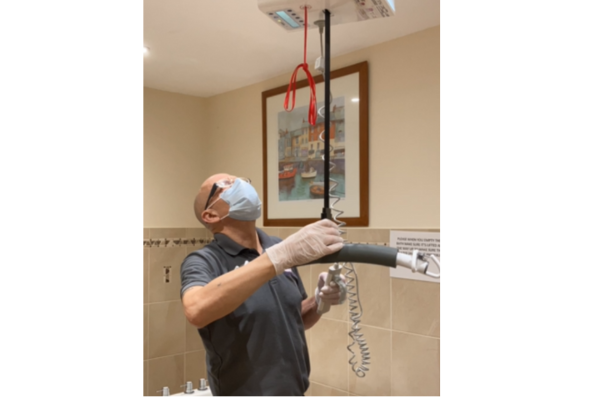The Importance of Training Temporary Care and Agency Staff in Equipment Usage.
Hi there,
Phil Cotton again here from Hcsuk.
As a service engineer dedicated to the betterment of care facilities and the well-being of those we serve, I find it imperative to address a critical aspect of our industry, which is ensuring temporary care and agency staff are fully trained and proficient in handling care equipment competently.
In our industry, temporary care and agency staff play a pivotal role in maintaining continuity of care to the loved family members you support. However, one area that I find requires more attention is the proficiency of these staff members in utilizing care equipment without causing potential expensive damage due to not being familiar with best working practices.
This particular blog comes hot off the back of a call out I attended recently from a group that are owners of a good number of care homes which we provide equipment servicing to, who have had no choice but to replace four ceiling track hoist pods within a few months at a substantial cost to their business whilst also resulting in emergency call outs and subsequent weeks of downtime to vital fixed lifting equipment which were ALL totally avoidable, solely down to misuse of the equipment by temporary agency staff which caused a catastrophic failure to the internal mechanism of the ceiling track hoists.
Just this last week in fact, I had another call out to another issue of the same type, but thankfully the mechanism and lift tapes weren’t damaged in this instance, and I was thankfully able to affect a suitable repair to the microswitch levers and get it running again in a room where the service user is totally reliant upon on the good working order of the hoist. Although I was extremely pleased to help, there are some vital points I would like to highlight for you to consider:
1. Comprehensive Training Protocols:
Comprehensive training protocols ensures that temporary staff are equipped with the necessary knowledge and skills to handle your care equipment correctly and effectively. Training should cover a range of equipment commonly used in your care environments, including but not limited to moving and all handling equipment such as patient lifts and stand aids, bath assisted lifts, and accessories such as patient lifting slings.
2. Hands-On Practical Sessions: Theory alone is NOT sufficient.
Practical hands-on sessions with new temporary staff is essential to reinforcing theoretical knowledge and would address any concerns or questions that would arise from their basic training.
3. Regular Refresher Courses:
Technology within our industry evolves rapidly, and care equipment may undergo updates or modifications. Therefore, it's crucial to conduct regular refresher courses to ensure that all staff keep updated on the latest advancements and best practices in care equipment usage.
These refresher courses also serve as opportunities to reinforce existing knowledge and identify areas for improvement.
4. Accessible Training Resources:
Provide access to comprehensive training resources, including manuals, instructional videos, and online modules.
These resources empower temporary staff to review essential information at their convenience and serve as valuable reference materials when encountering unfamiliar equipment or situations.
5. Ongoing Support and Supervision:
After completing initial training is completed, ongoing support and supervision are vital to address any challenges or uncertainties that temporary staff may encounter while using care equipment.
Encourage an open-door policy where ALL staff feel comfortable seeking guidance and clarification whenever needed to help avoid any excessive repair costs and more importantly downtime.
6. Quality Assurance Measures:
Implementing regular competency assessments and simulated scenarios, can be really helpful in ironing out any ‘bad habits’ and ensure that temporary staff are using your equipment competently and safely.
By prioritising the training and proficiency of temporary care and agency staff in hoe to utilize your equipment correctly, we can enhance the overall quality of care we provide.
Competent staff not only ensure the safety and well-being of residents/patients but also contribute to a positive and efficient working environment for all team members.
To discuss your care home servicing needs, why not book a meeting with our Servicing Support Manager Lee here or contact him at servicing@hcsuk.co.uk or call 01773 713713.
That’s all for now, until next time…
Phil





